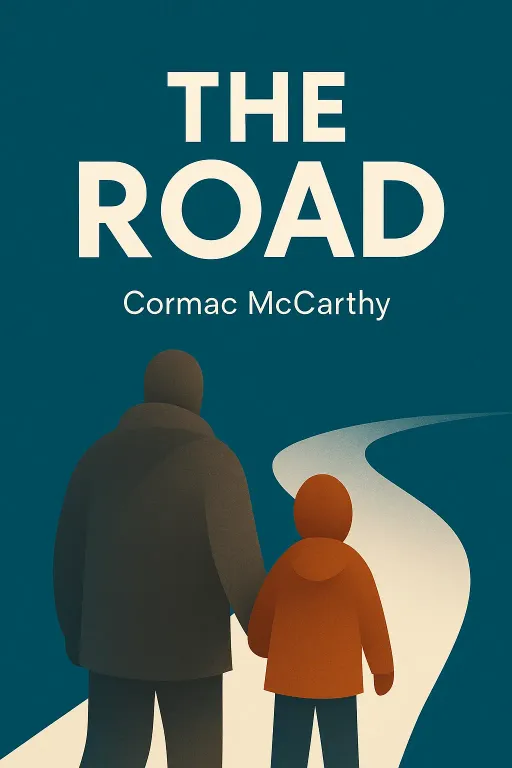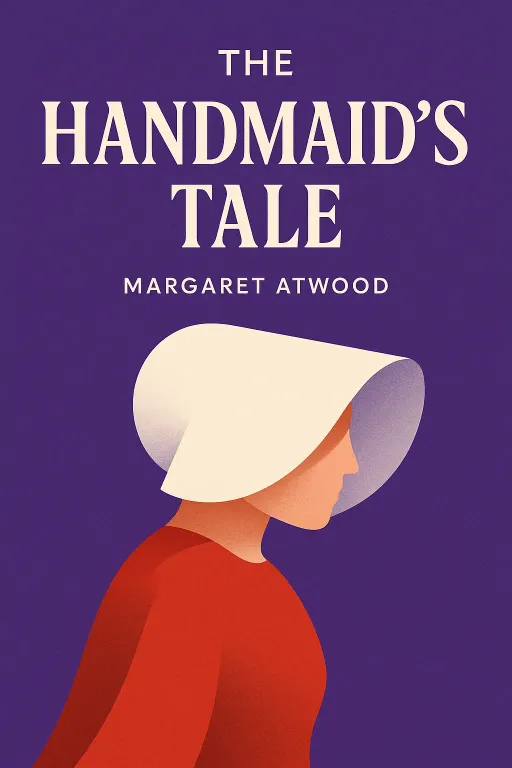
The Road
8 minIntroduction
Narrator: Imagine waking up to a world of ash. A fine, gray powder covers everything—the skeletal trees, the buckled asphalt, the silent, abandoned houses. The sun is a dim smudge in a colorless sky. There is no birdsong, no sign of life, only a pervasive, biting cold and the constant threat of starvation. In this dead world, a man and his young son walk south along a deserted road, pushing a shopping cart with their meager possessions. What does it mean to be good when civilization has vanished? What is the purpose of survival when there is no future to survive for?
These are the harrowing questions at the heart of Cormac McCarthy's Pulitzer Prize-winning novel, The Road. It is a stark, unflinching look at the absolute extremes of human existence, stripping away everything but the bond between a father and his child, and the faint, flickering flame of hope they try to protect against an overwhelming darkness.
The Unforgiving Landscape of Survival
Key Insight 1
Narrator: In the world of The Road, the environment itself is an antagonist. The unspecified cataclysm has left the earth scorched and sterile, a landscape of gray and black. Survival is a moment-to-moment struggle defined by a relentless search for the most basic necessities: a can of food, a source of clean water, or shelter from the freezing rain. The novel establishes that in this new reality, the old rules of society have completely dissolved, replaced by a brutal, primal code.
This constant danger is not just environmental; it comes from the few other humans who remain. Most are predators, organized into cannibalistic gangs or acting as desperate, solitary threats. An encounter with other people is almost never a cause for relief, but for terror. This is powerfully illustrated when the man and boy hide from a passing truck full of armed men. Later, they are forced into a violent confrontation with a roadrat who tries to take the boy hostage. The father, armed with a pistol containing only two rounds, is forced to kill the man to protect his son. In this world, violence is not a choice but a grim necessity, and every shadow could hide a lethal threat, forcing the pair into a state of perpetual vigilance.
Carrying the Fire of Humanity
Key Insight 2
Narrator: At the core of the novel is the profound and desperate love between the father and son. The man’s entire existence is dedicated to the boy's survival. He is the boy’s protector, teacher, and moral guide in a world devoid of them. The boy, in turn, is the man's reason for living, his sole connection to a world worth fighting for. The man often thinks of his son in almost religious terms, at one point reflecting, "If he is not the word of God God never spoke." This bond is their sanctuary.
Their shared purpose is encapsulated in a recurring phrase: "carrying the fire." This "fire" represents their humanity, their compassion, and their refusal to descend into the barbarism they see all around them. It is their commitment to remaining "the good guys." This idea is tested constantly, but it finds expression in small, poignant moments. After scavenging a ruined supermarket, the man finds a single can of Coca-Cola. Instead of consuming it himself, he gives it to the boy as a special treat, a relic from a forgotten world of simple pleasures. They share it, and for a brief moment, they are not just survivors, but a father and son sharing an experience. These acts of love and tenderness are what keep their internal fire from being extinguished by the cold, gray ash of their reality.
The Moral Cost of Staying Alive
Key Insight 3
Narrator: While the father strives to "carry the fire," the novel unflinchingly explores the moral compromises required to survive. The line between being one of the "good guys" and one of the "bad guys" becomes terrifyingly thin. The father's love for his son forces him into acts of brutality that haunt them both. After their cart and all their possessions are stolen, they track down the thief. The father, filled with cold rage, confronts the man at gunpoint and forces him to strip naked, leaving him to die in the cold.
The boy is deeply traumatized by this act. He weeps for the thief, unable to reconcile his father's cruelty with their identity as the good guys. His compassion forces the father to confront the man he is becoming. They eventually return to leave clothes for the thief, but he is gone. This incident reveals the central tension of the book: the father must sacrifice parts of his own humanity to protect the boy's, yet in doing so, he risks destroying the very "fire" he is trying to preserve. The boy acts as the story's moral compass, constantly questioning their actions and reminding his father of a goodness that seems to have vanished from the world.
The Endurance of Hope in a Hopeless World
Key Insight 4
Narrator: As their journey progresses, the man's health deteriorates. He is wracked by a bloody cough, and he knows he is dying. The narrative becomes a race against time as he tries to impart the last of his wisdom and will to his son. He teaches the boy how to use the pistol, not just for defense, but for a quick death if captured by cannibals. His final lessons are about enduring, about remembering the stories of goodness, and, above all, about continuing to carry the fire. He promises the boy that even after he is gone, he can still talk to him, and he will be there.
The man’s death is a moment of profound devastation, leaving the boy utterly alone in the silent woods. Yet, it is not the end. After three days, the boy is found by another man, one who is traveling with his family, including a wife and two children. The boy, using the lessons his father taught him, cautiously asks if they are "the good guys" and if they are "carrying the fire." The man confirms they are. In the novel's final, ambiguous moments, the boy joins this new family, a small flicker of community and hope appearing just as all seems lost. The future is uncertain, but the fire has been passed on.
Conclusion
Narrator: The single most important takeaway from The Road is that humanity is not defined by our circumstances, but by the love and compassion we choose to preserve in the face of them. Cormac McCarthy suggests that even when society, nature, and hope itself seem to have died, the "fire" of goodness can be carried within the human heart, passed from one person to another like a sacred trust. It is this internal flame, not external salvation, that offers the only true redemption.
The book leaves us with a challenging question: What is the fire that you carry? In a world that often feels dark and fractured, McCarthy's stark parable forces us to look inward and identify the core of our own humanity—the love, the kindness, the moral code—and asks if we have the strength to protect it, no matter how cold the world gets.









